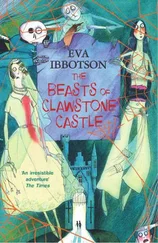Ibbotson, Eva - Magic Flutes
Здесь есть возможность читать онлайн «Ibbotson, Eva - Magic Flutes» весь текст электронной книги совершенно бесплатно (целиком полную версию без сокращений). В некоторых случаях можно слушать аудио, скачать через торрент в формате fb2 и присутствует краткое содержание. Год выпуска: 2011, Издательство: Macmillan Publishers UK, Жанр: Старинная литература, на английском языке. Описание произведения, (предисловие) а так же отзывы посетителей доступны на портале библиотеки ЛибКат.
- Название:Magic Flutes
- Автор:
- Издательство:Macmillan Publishers UK
- Жанр:
- Год:2011
- ISBN:нет данных
- Рейтинг книги:3 / 5. Голосов: 1
-
Избранное:Добавить в избранное
- Отзывы:
-
Ваша оценка:
- 60
- 1
- 2
- 3
- 4
- 5
Magic Flutes: краткое содержание, описание и аннотация
Предлагаем к чтению аннотацию, описание, краткое содержание или предисловие (зависит от того, что написал сам автор книги «Magic Flutes»). Если вы не нашли необходимую информацию о книге — напишите в комментариях, мы постараемся отыскать её.
Magic Flutes — читать онлайн бесплатно полную книгу (весь текст) целиком
Ниже представлен текст книги, разбитый по страницам. Система сохранения места последней прочитанной страницы, позволяет с удобством читать онлайн бесплатно книгу «Magic Flutes», без необходимости каждый раз заново искать на чём Вы остановились. Поставьте закладку, и сможете в любой момент перейти на страницу, на которой закончили чтение.
Интервал:
Закладка:
He turned. ‘My fiancée doesn’t care for music,’ he said, his voice expressionless.
Jacob looked up in surprise. ‘But I thought . . . I thought it was because . . .’ He saw Guy’s face and fell silent.
‘Then you thought wrongly,’ said Guy silkily.
It was then that, seeking escape from Jacob’s arche-typally tortured-looking face, Guy turned back to stare out of the turret window. More keen-sighted even than Maxi’s valet, he saw the boat on the lake, saw the occupants surrounded by a gaggle of multi-coloured dogs . . . saw Tessa drop the tiller lines and lean over to kiss – with a tenderness undiminished by distance – the Prince of Spittau on the brow.
The news of Maxi’s engagement spread, like the good news from Aix to Ghent, with amazing speed. In the West Tower the arthritic Swan Princess, abandoning her telescope, managed to caper round the room and to embrace the aunts whose faces shone with relief and joy. They were presently joined by Monteforelli, the Archduke Sava and the Archduchess Frederica, and since the prince happened to have a bottle of champagne with him, a happy party was soon assembled and to the agitated barks of the pug, dynasties were cemented and wedding plans laid.
The Countess Waaltraut, pushing her mother across the courtyard, heard of Maxi’s successful courtship from the Uhlan captain with the wooden leg, who had heard it from Raisa Romola who had been sunbathing on the battlements and seen the kiss. The Comte d’An-tibes heard it from his valet, who heard it from the gardener who had been clipping the yew hedge on the terrace overhanging the lake.
The Littlest Heidi heard the news as it spread through the opera company, and managed to be glad for she was a girl with a good heart; David Tremayne, who heard it from Thisbe Purse, who heard it from the Archduchess Frederica’s maid, managed to be glad too for it appalled him to think that when she left here, Tessa would no longer have a home.
Guy Farne heard it from Nerine.
‘They’re engaged, Guy! Tessa and the Prince of Spittau! Isn’t it splendid news!’ And indeed, Nerine’s lovely face glowed with happiness. Not only was the princess leaving the castle for good but she was marrying someone else! No more dramatic entrances, no more of those friendly, intimate looks at Guy, those boring conversations about music from which Nerine had felt herself excluded.
‘Yes,’ said Guy. ‘I’d heard. Or rather seen. I’m sure they will suit each other excellently.’
He then excused himself to go to the gymnasium. His morning’s squash and tennis, the long ride, having naturally left him short of exercise, Guy now indulged in a ferocious bout of fencing with a young cavalry officer who, having taken on the Englishman out of politeness, found himself two hours later thoroughly trounced. It was as Guy was returning to his room, showered and sleek and unpleasantly vulpine looking, that he found the double doors of the theatre open and Witzler’s under wardrobe mistress carrying a wicker skip out to the waiting lorry.
The sight of her small figure in the same smock, packing up as though nothing had happened, as though she was still the unassuming child he had befriended in Vienna, made him suddenly choke with an almost blinding rage.
‘I have to congratulate you, then,’ he said, blocking her path. ‘And indeed you are most heartily to be congratulated. You certainly took me in, in a most impressive way. You know, I actually believed what you said.’
‘What I said?’ repeated Tessa, completely bewildered. She put down the basket and stared at him.
‘Your remarks about being a republican. About art making everybody equal. Doesn’t your own hypocrisy ever sicken you? All that rubbish about Schönbrunn: how constrained you were, how unhappy.’
‘I didn’t . . .’ But it seemed impossible to speak. The lump in her throat was too obtrusive – and anyway Guy was far too angry to hear a word she said.
‘No doubt you will find it amusing, but I actually believed you for a while. I thought you truly wanted to escape from the limitations of your upbringing. I thought you wanted to be free – that all this clap-trap of rank and ceremony meant nothing to you.’ He laughed, and it was an amazingly unattractive sound. ‘Yes, I believed you. I was quite touched. I even believed what you told me at Sachers.’
She flushed, staggered at his bad manners in referring to her confidence. ‘What . . . have I done?’ she managed to falter. ‘Why are you like this?’
‘Oh, you’ve done nothing. All is as it should be,’ he jeered. ‘Sixteen quarterings – or is it thirty-two? An impeccable lineage, rejoicing all round.’
‘I cannot help . . . my lineage.’
‘It doesn’t happen to be your lineage that I am referring to.’
But it was necessary now to curtail this interview before his mind registered what his eyes were already seeing: a weary child leaning her head against the side of the lorry as though the weight of it was suddenly too much for her to bear. Did it matter, after all, that she had succumbed to the pressure of her relatives? Maximilian was a fool but he was neither venal nor cruel.
He shrugged. ‘Well, I hope you’ll be happy,’ he said.
Boris, coming out a few minutes later, found Tessa still leaning against the lorry. Not crying, just standing there with the wicker basket lying at her feet.
‘Jesus!’ said Boris, looking at her face, and led her away.
Installed in Boris’s cubby-hole behind the stage, Tessa dutifully swallowed the scalding tea he brewed for her on his samovar, but when he handed her a saucer of yoghurt she managed a ghost of a smile and shook her head.
‘Thank you, you are very kind,’ she said carefully. ‘But I don’t think . . . I really want to live to be very old. You eat it, Boris.’
Boris, as he took the spoon from her, continued to stare at her in consternation. What was all this? Like everyone else he had heard about the events in the rowing-boat, but when she had come up from the lake Tessa had said nothing, just begun in her usual way to throw herself into her work, and no one in the company had ventured to congratulate her, waiting for the news to be official. Then Witzler had come with his bombshell: the news of Farne’s rejection and instructions that they were to pack and leave at once. Even then, in the misery and disappointment that had followed, the tears of the Rhinemaiden, the hurt and shock on the artists’ faces, Boris had held on to the idea that Tessa, at least, would be all right. But if being engaged to the Prince of Spittau was going to make her look like that . . .
‘You don’t have to do anything you don’t want to,’ he said now. ‘No one can force you.’
But Tessa had not really heard him, caught as she was in the toils of her private nightmare. A nightmare out of which she now visibly tried to lift herself, putting a hand on his arm to say, ‘It will be all right about the company, Boris, I’m sure. Herr Witzler’s so clever. He’ll work something out, you’ll see.’
‘Yes,’ said Boris to reassure her. But he knew rather more about the company’s finances than she did and his view of the future was bleak indeed. ‘I’ll never learn to yodel now,’ thought Boris, and began to eat.
An hour later, the farewell banquet was in full swing. A mood of particular elation and jollity was evident among the guests. The news of Putzerl’s engagement, along with the desire to eat and drink as much as possible before they had to depart and take up the burden of their lives again, kept them happily absorbed. Never had uniforms glittered so brightly, jokes been so deliciously risqué, flirtations so skilfully pursued.
Herr Farne, beside his lovely widow, seemed as everyone noted to be in particularly high spirits. Presently he rose to make a speech: witty, brilliant, of exactly the right length. He announced the date of his own wedding, at the end of October, thanked all those present for the pleasure of their company and with a gallant bow raised his glass to the health and happiness of ‘Absent Friends’.
Читать дальшеИнтервал:
Закладка:
Похожие книги на «Magic Flutes»
Представляем Вашему вниманию похожие книги на «Magic Flutes» списком для выбора. Мы отобрали схожую по названию и смыслу литературу в надежде предоставить читателям больше вариантов отыскать новые, интересные, ещё непрочитанные произведения.
Обсуждение, отзывы о книге «Magic Flutes» и просто собственные мнения читателей. Оставьте ваши комментарии, напишите, что Вы думаете о произведении, его смысле или главных героях. Укажите что конкретно понравилось, а что нет, и почему Вы так считаете.












